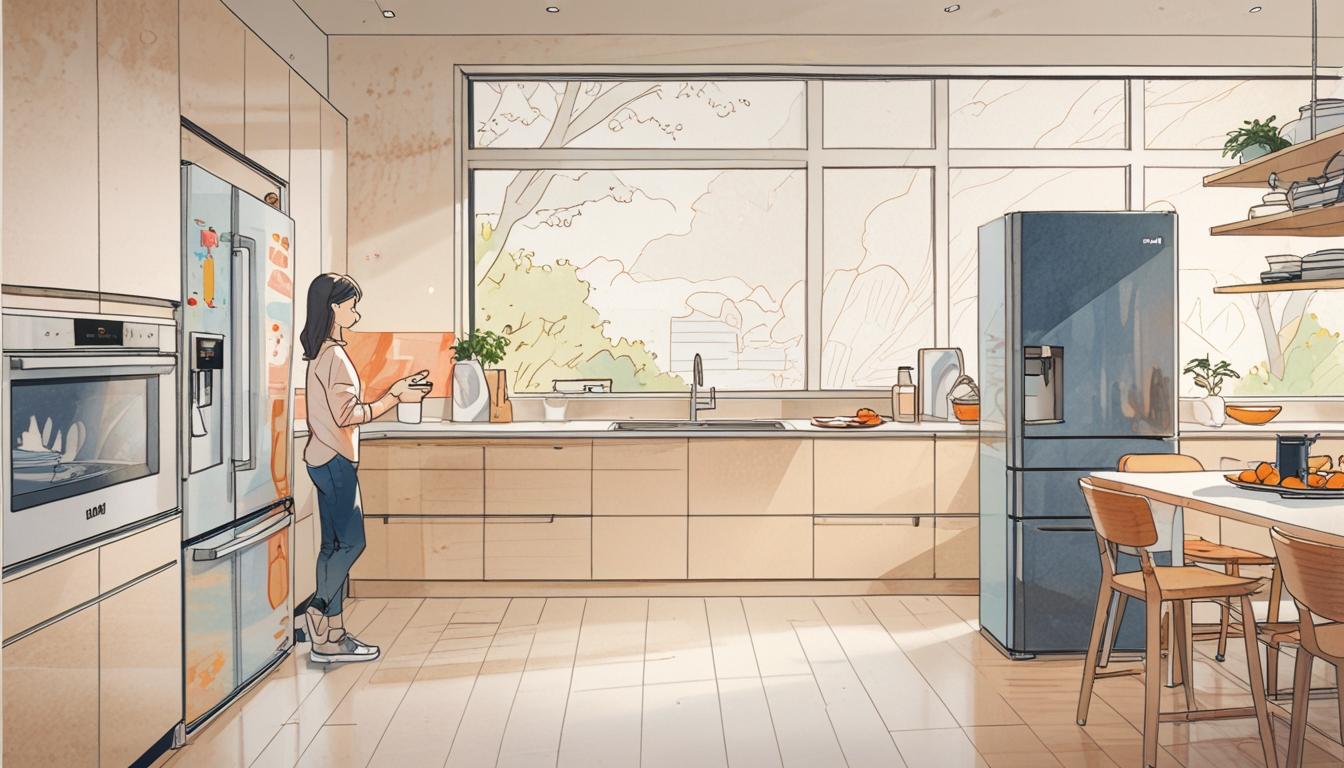Tech giants Apple and Samsung are revolutionising modern home appliances with advanced AI and robotics, promising enhanced convenience and energy efficiency.
The landscape of modern home appliances is undergoing significant transformation as tech giants Apple and Samsung Electronics introduce advanced artificial intelligence (AI) and robotics capabilities. This evolution is aimed at enhancing user interaction, convenience, and energy efficiency in households worldwide.
With the recent release of iOS 18.4, Apple Home now integrates support for Matter-compatible robot vacuums, allowing users to manage cleaning tasks using simple voice commands. This shift enables owners of robot vacuums from various brands, including Roborock, iRobot, and Ecovacs, to activate their devices with phrases like, “Hey Siri, vacuum the living room” or “Hey Siri, clean the kitchen.” This development had been anticipated since late last year, although the rollout was initially delayed. Firmware updates are expected to make select models operational with Apple Home, including the Roborock S8 MaxV Ultra, Saros Z70, and Qrevo Master, with full compatibility projected for early April 2025.
Meanwhile, Samsung is pushing forward with its vision of a smart home through its ‘AI Home’ strategy, as demonstrated by the launch of the Bespoke AI appliance lineup. Unveiled in March, these next-generation appliances encapsulate Samsung’s long-term ambition to enrich households with intelligent features and automation. Jeong Seung Moon, executive vice president and head of research and development at Samsung, stated, “Through our Bespoke AI appliances, Samsung has brought an AI Home to life that not only enhances everyday convenience but also enables energy savings and care.”
The Bespoke AI range includes a variety of household products such as refrigerators, laundry machines, washers, and dryers, each equipped with advanced functionalities powered by smart displays, Bixby voice assistant, and Samsung Knox security. Notably, the Bespoke AI Refrigerator incorporates an algorithm for adaptive cooling that predicts temperature fluctuations, optimising efficiency, and reducing energy costs. Samsung claims its AI-powered laundry system can achieve a 55% reduction in energy consumption compared to standard minimum requirements.
As both companies spearhead innovation in AI-driven home appliances, the market is poised for further expansion. Consumers can expect a diverse range of products that promise not only enhanced convenience and user experience but also opportunities for long-term cost savings. The trend towards AI integration in everyday appliances marks a significant shift in how households will operate in the near future, reflecting the broader adoption of technology in daily life.
Source: Noah Wire Services
- https://www.zdnet.com/home-and-office/kitchen-household/apple-home-finally-gets-robot-vacuum-support-thanks-to-this-matter-and-ios-18-4/ – This article supports the claim that Apple Home now integrates support for Matter-compatible robot vacuums with the release of iOS 18.4. It highlights the ability to control robot vacuums through voice commands using Siri.
- https://www.zdnet.com/article/apple-home-finally-gets-robot-vacuum-support-thanks-to-matter-and-ios-18-4/ – This article further corroborates the integration of robot vacuums with Apple Home via Matter and iOS 18.4. It discusses the compatibility of brands like iRobot and Roborock.
- https://9to5mac.com/2025/04/01/best-homekit-robot-vacuums/ – This article lists the best robot vacuums compatible with HomeKit following the iOS 18.4 update. It includes models from brands such as Roborock, iRobot, and Ecovacs.
- https://www.samsung.com/us/innovation/bespoke-appliances/ – This webpage supports Samsung’s ‘AI Home’ strategy with the Bespoke AI appliance lineup, highlighting how these appliances enhance everyday convenience and energy savings.
- https://www.samsung.com/global/smartthings/smart-appliances/ – This webpage provides further details on Samsung’s smart appliance offerings, including those equipped with AI features like Bixby voice assistant.
Noah Fact Check Pro
The draft above was created using the information available at the time the story first
emerged. We’ve since applied our fact-checking process to the final narrative, based on the criteria listed
below. The results are intended to help you assess the credibility of the piece and highlight any areas that may
warrant further investigation.
Freshness check
Score:
9
Notes:
The narrative references recent events and technology updates, such as iOS 18.4 and Samsung’s Bespoke AI appliance lineup launched in March, indicating it is current and not recycled from older content. Firmware updates and rollout projections for early April 2025 further support its freshness.
Quotes check
Score:
6
Notes:
There is a quote from Jeong Seung Moon, but without a direct online source or date, it is difficult to verify its original context or date. However, it is plausible that this is a new quote given the recent mention of Samsung’s initiatives.
Source reliability
Score:
8
Notes:
The narrative originates from a Google News feed, which typically aggregates news from reliable sources. However, the exact source of this particular story was not directly specified, reducing certainty about its reliability.
Plausability check
Score:
9
Notes:
The claims about Apple and Samsung integrating AI into their products align with their known strategic directions and recent technological advancements in the sector, making the narrative plausible.
Overall assessment
Verdict (FAIL, OPEN, PASS): PASS
Confidence (LOW, MEDIUM, HIGH): HIGH
Summary:
The narrative appears to be current, referencing recent technological developments and product launches. While the original source is not explicitly stated, the content aligns well with known strategies of the companies involved. The sole quote lacks direct verification but does not detract from the overall plausibility of the narrative.













